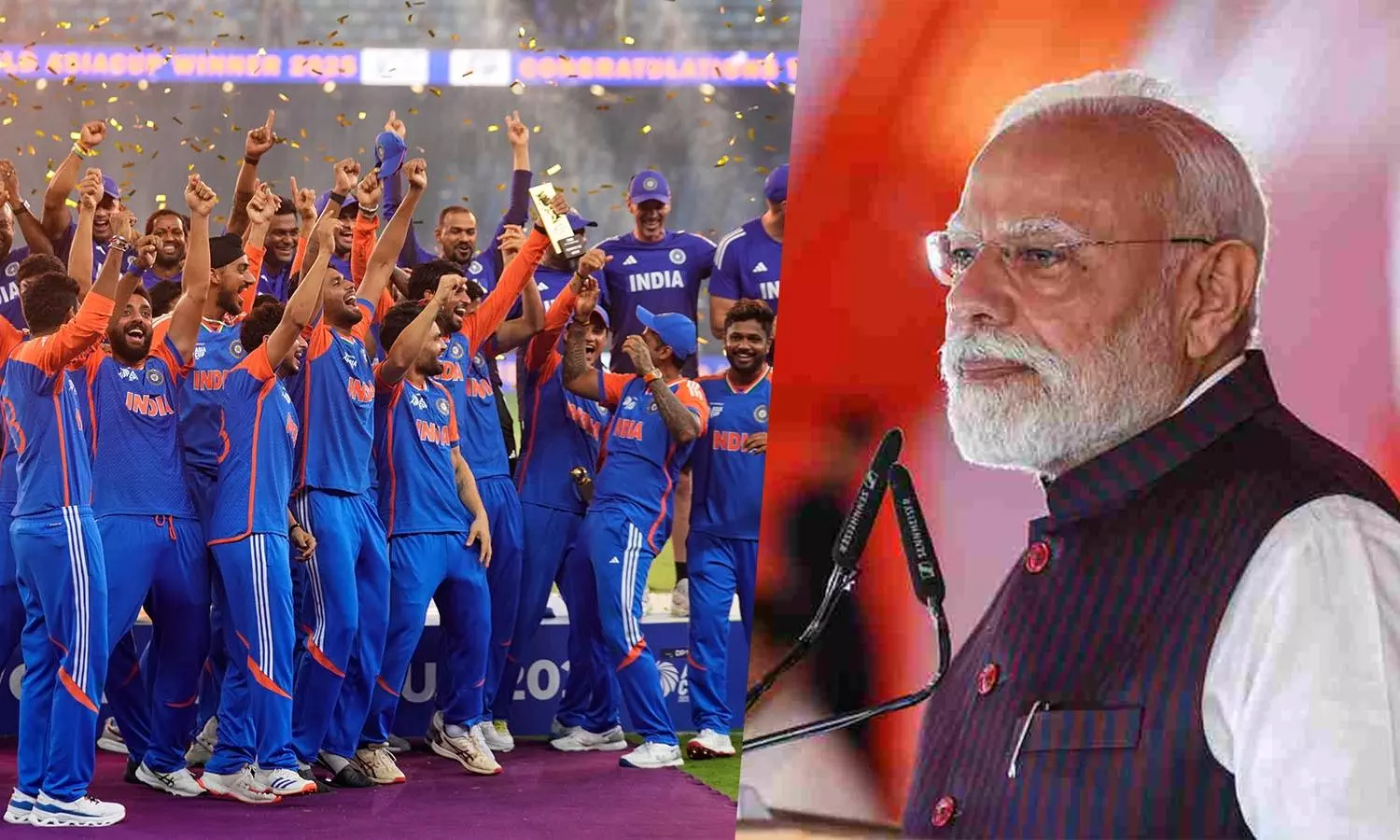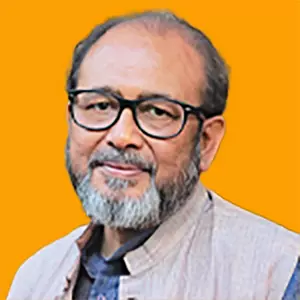
- Home
- India
- World
- Premium
- THE FEDERAL SPECIAL
- Analysis
- States
- Perspective
- Videos
- Sports
- Education
- Entertainment
- Elections
- Features
- Health
- Business
- Series
- In memoriam: Sheikh Mujibur Rahman
- Bishnoi's Men
- NEET TANGLE
- Economy Series
- Earth Day
- Kashmir’s Frozen Turbulence
- India@75
- The legend of Ramjanmabhoomi
- Liberalisation@30
- How to tame a dragon
- Celebrating biodiversity
- Farm Matters
- 50 days of solitude
- Bringing Migrants Home
- Budget 2020
- Jharkhand Votes
- The Federal Investigates
- The Federal Impact
- Vanishing Sand
- Gandhi @ 150
- Andhra Today
- Field report
- Operation Gulmarg
- Pandemic @1 Mn in India
- The Federal Year-End
- The Zero Year
- Science
- Brand studio
- Newsletter
- Elections 2024
- Events
- Home
- IndiaIndia
- World
- Analysis
- StatesStates
- PerspectivePerspective
- VideosVideos
- Sports
- Education
- Entertainment
- ElectionsElections
- Features
- Health
- BusinessBusiness
- Premium
- Loading...
Premium - Events

Indian cricketers who won the Asia Cup refused to shake hands with Pakistan players. File Photos: PTI
PM Modi equating India's cricket victory over Pakistan with a military action belittles armed forces and violates the spirit of sportsmanship
Prime Minister Narendra Modi’s extremely contentious post on X, in which he put India’s hard-fought victory in the finals of the Asia Cup, at par with Operation Sindoor, diminished the Indian armed forces by equating their valour and fearlessness on the battleground with the performance of cricketers on the playing field. And, that too in a game which became much tighter than the previous two matches between them during the tournament and thereby could have even gone the other way.
The post also sent out a not-so commendable message to all sportspersons of the country, unbecoming from a country’s Prime Minister, in which he endorsed violation of the ‘sportsperson spirit’. He effectively goaded each one representing the country to embrace un-sportsperson like behaviour, especially when competing against peers from Pakistan.
Encouraging any sportsperson to distinguish between opponents, calling for greater intensity when playing against our western neighbour, was little but boorishness. Such a call is neither acceptable for players on sports fields, nor should it be made in the international arena by a leader who rubs shoulders with global statespersons.
Belittling soldiers
It does not require recalling that all players in any sports played between individuals or teams representing institution, province or nation, should never lose sight of the need for respecting one’s opponent(s).
Instead of buttressing that cardinal ethos, Modi’s message virtually instructed every sportsperson to play against Pakistani rivals as if they are waging war on their nation. If the armed forces are the ‘real’ soldiers on the battleground, sportspersons, the post prompted, must see oneself when playing against a Pakistani team or a single individual as their proxies on the playground.
Likening the cricket match to the military action launched by India and waged by the armed forces putting their lives in peril, belittled them. While the armed forces were little but dutiful in following the government’s instructions and protecting national honour and dignity, the cricketers were not remotely performing such a part.
#OperationSindoor on the games field. Outcome is the same - India wins!Congrats to our cricketers.
— Narendra Modi (@narendramodi) September 28, 2025
Instead, contemporary cricket, especially the abbreviated formats, is little but occasions to provide entertainment and opportunity for cricket boards of competing countries to rake in the moolah. Given this backdrop, it defies logic why Modi put the cricketers, squeaking home with a victory, at par with the bravery of armed forces, as alluded to, by Modi’s own publicity machinery in regard to the ‘actual’ Operation Sindoor in May.
Junking sportsmanship spirit
In the era of AI it is not difficult to recover from submerged memory, key aspects of sportsperson spirit: Fair play and maintenance of integrity; show respect to opponents, officials and the sport itself; remember that victory is not the sole concern and maintain composure in victory as well as defeat – the job of sports is also to build ties.
Also read: India-Pakistan Asia Cup final: When politics and business overshadowed cricket
In a way thus, sportspersons were seen as ambassadors of not just the nation but also its people. Bad blood began flowing between India and Pakistan teams with the refusal of the Indian team to shake hands with the Pakistani team. Captain Surya Kumar Yadav said at the post-match press conference that this decision had been collectively taken by the team because “some things are ahead of sportsman spirit.”
Effectively, this meant that the Indian captain accepted that the spirit had been violated by the team because “we are aligned with the BCCI and government.”
Clearly, Yadav is unaware of the Olympic Charter which mandates unambiguous separation of national sports bodies from the government. They are required to maintain autonomy and resist government interference, including political, legal, religious, or economic pressure.
Yadav clearly forgot that he and the rest of the team were representing the nation and not the government. Individual citizens of India are well within their right to disagree with the government’s narrative on Operation Sindoor and ask uncomfortable questions because that is the essence of democracy, disputing the government line and asking uncomfortable questions.
Yadav clearly forgot that he and the rest of the team were representing the nation and not the government.
After the handshake refusal, Pakistani player Haris Rauf’s needless gesture of a crashing plane further vitiated the atmosphere. But there was little need for Jaspreet Bumrah also to stop equally low. Players must remember that in the sports field, it does not take more than a split second to reverse the outcome. I dread to think of the fate that awaits the captain or the team on return to India, which in future may lose to a Pakistan team.
Toeing official line
The Indian team and several cricket officials, besides the horde of television reporters and bulk of anchors presenting the cricketing shows, promoted the ‘official’ argument that the Indian team refused to accept the Asia Cup from Asian Cricket Council president Mohsin Naqvi because he was also the chairman of the Pakistan Cricket Board and the interior minister of Pakistan.
The Indian players and the BCCI did not want to accept the trophy from Naqvi because it held Pakistan conducted a proxy attack against civilians in Pahalgam. He represents the government that ‘cleared’ or ‘backed’ the outrageous attack on innocent Indians.
India’s accusation that Pakistan has long waged a proxy war against India and promoted cross-border terrorism is a different matter. But the issue of cricketing officials of both countries also holding on to political positions, is a malaise that affects both India and Pakistan.
Also read: BJP, AAP clash after Asia Cup trophy drama: 'Players given new script for propaganda'
Take the case of Jay Shah for instance. Although not a political leader himself or holding a political position, his father Amit Shah has been a minister of the Union government since June 2019. Shah junior was made a joint secretary of the Gujarat Cricket Association when his father was its president. Shah junior was also president of Asian Cricket Council at a later date.
The BCCI has seen numerous political leaders wielding important positions. This is across political parties, but mainly the two principal parties in India, BJP and Congress.
In the history of India-Pakistan cricketing ties, the Indian team has toured Pakistan several times when its cricket board was headed by a political appointee or by someone who was also simultaneously holding a position in office. As a result, India’s defense for not accepting the trophy from Naqvi is not particularly rock solid.
The moot point therefore is why did Modi post that message on X shortly after the match ended?
Politics of otherisation
As was demonstrated in last year’s Lok Sabha elections, the electorate in several parts of India is beginning to see through Modi’s narrative of claims and promises. In such a situation, the Bharatiya Janata Party, with no answer for rising unemployment and floundering personal incomes of the majority of people, does not have any issue in its grasp to retain electoral hegemony but its old playbook – social polarisation and re-running the politics of otherisation.
From a time when sportspersons looked at political leaders in the eye, we now have the likes of Yadav who have no qualms in considering the nation and government as being one and the same.
Part of the problem stems from a system where it is now believed that no appointment or selection in sports is purely on the basis of ability, or performance. Facing a difficult phase in his career because of a string of low scores, Yadav possibly felt that toeing the government line will buy him time, while hoping to strike form once again.
India-Pak binary
Sadly, the message from Modi’s post on X, that sportspersons should be particularly focussed on competitors from Pakistan is beginning to resonate among Indian sportspersons, their coaches and sports officials.
Less than a fortnight ago, javelin thrower Sachin Yadav made a stunning impact at the World Athletics Championships in Tokyo. He secured the fourth place with a personal best of 86.27 meters at a meet where the Olympic champion Neeraj Chopra finished eighth.
In a conversation with a sports journalist, his old coach Naval Singh, a Dronacharya awardee, said he used the India versus Pakistan rivalry to motivate Sachin.
“I told him that come what may, make sure you finish ahead of (Arshad) Nadeem. He promised he would. I think it was extra motivation,” Singh told the journalist.
Given the task that was set for him by his coach, Yadav ‘succeeded’ in his endeavour for Nadeem suffered a shock exit and finished outside the top eight in the competition.
The India-Pakistan binary does sportspersons no good. It is for their political benefit that leaders like Modi rake in the issue to further their position. Yes, the Indian cricket team needed to be congratulated by the Prime Minister for a hard-fought victory and winning a trophy, but it should not have been equated with national service on the battleground, because it certainly was not a political victory or a military triumph.
Sportspersons however, have to be true to their passion and they must play the game on the basis of its ethos and spirit. Being truthful to the spirit of the game will be the best form of patriotism.
(The Federal seeks to present views and opinions from all sides of the spectrum. The information, ideas or opinions in the articles are of the author and do not necessarily reflect the views of The Federal)


